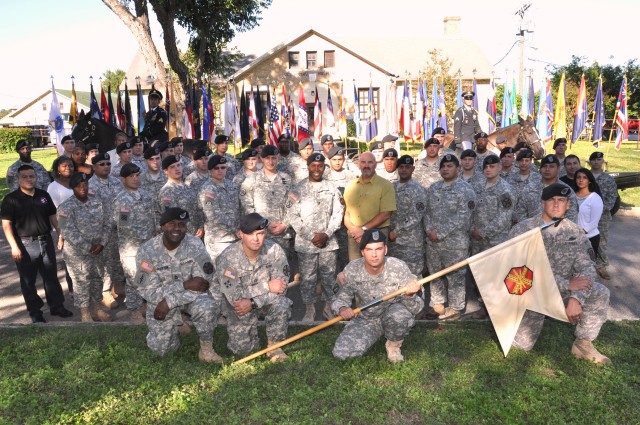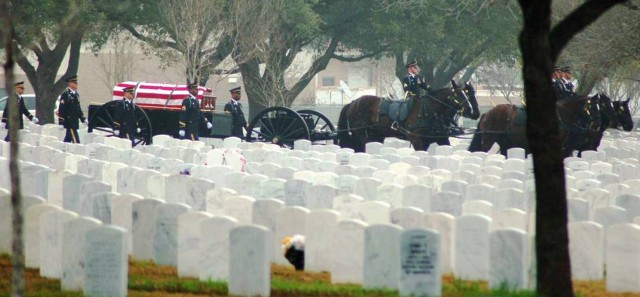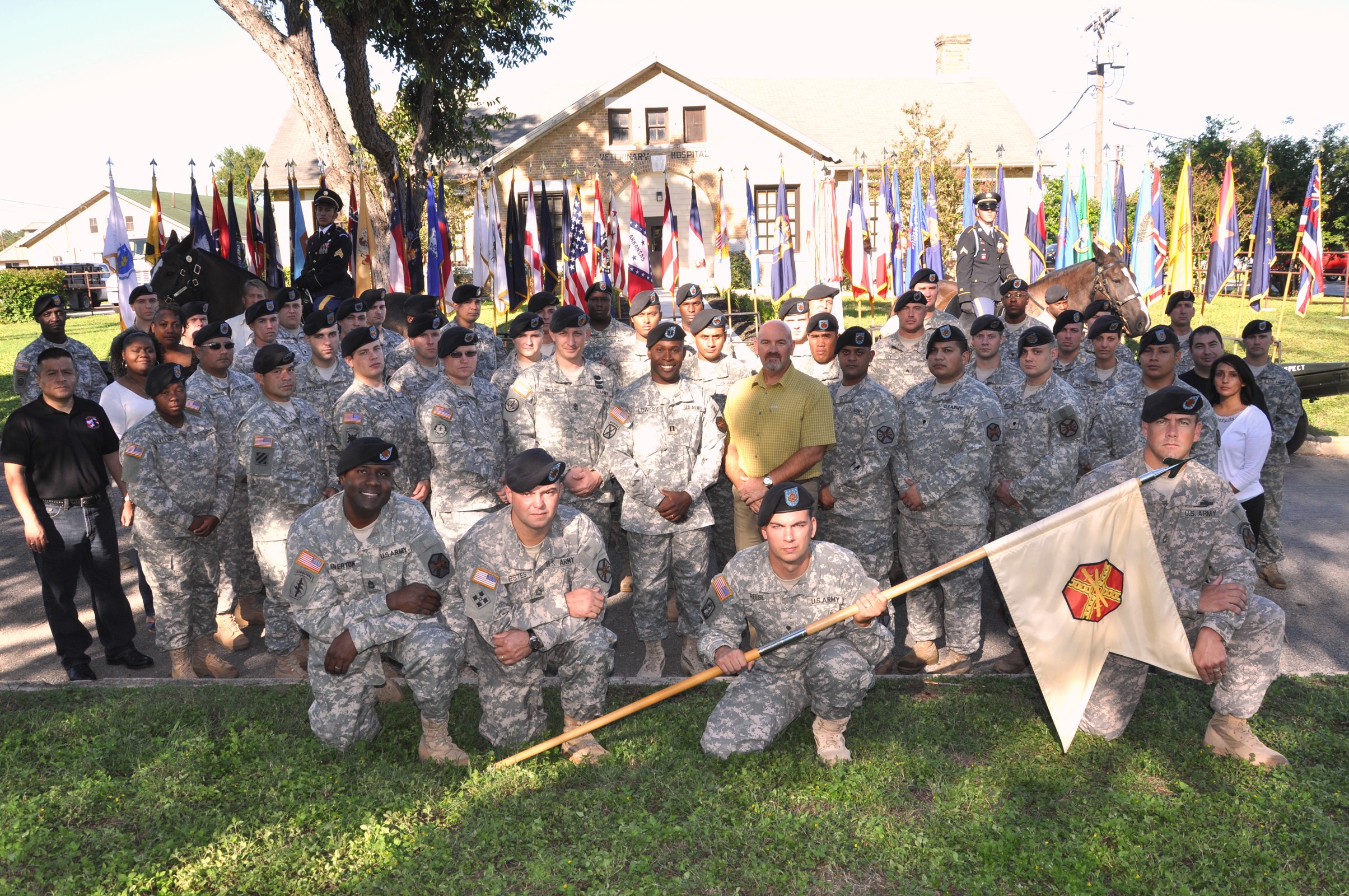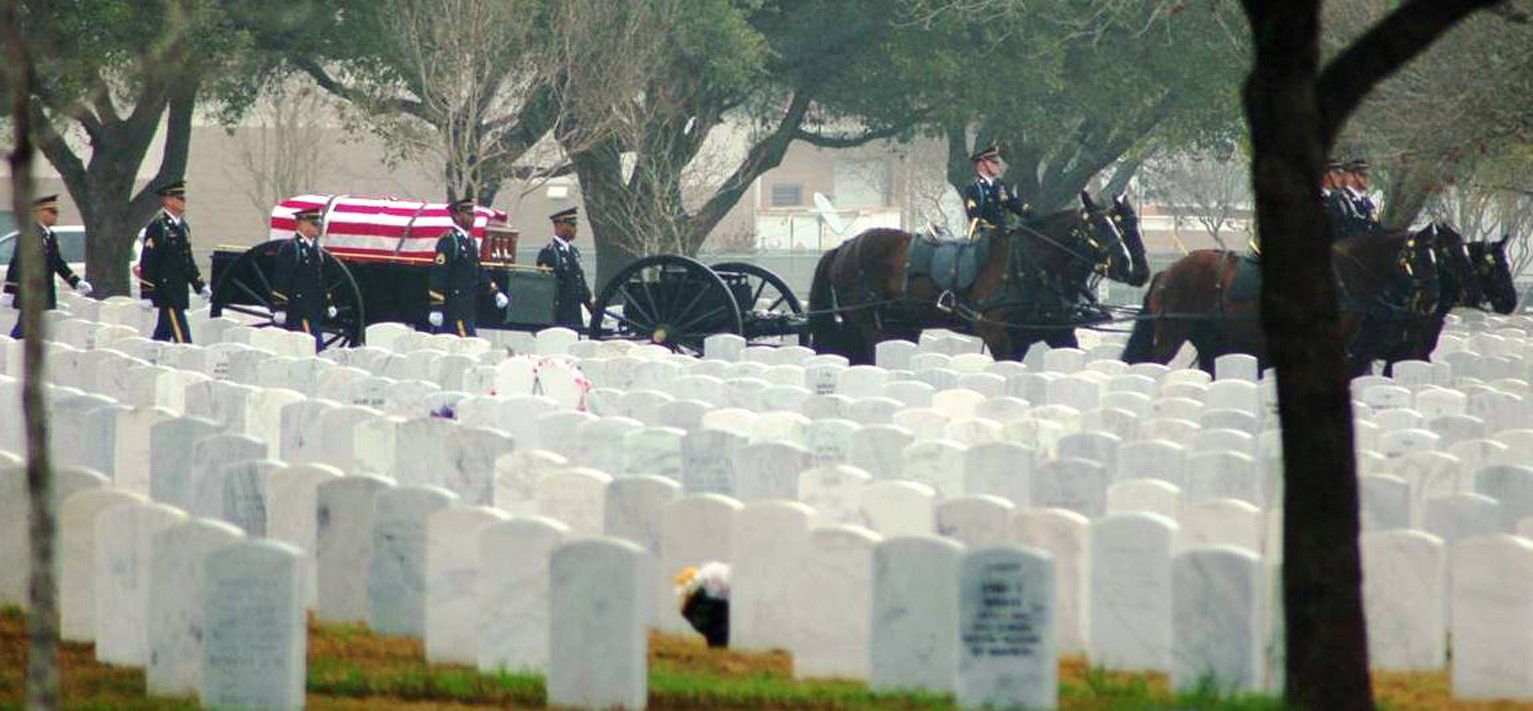FORT SAM HOUSTON, Texas -- They carry out a solemn service, forming a lasting impression the Family has when a Soldier or veteran is interred at the Fort Sam Houston National Cemetery.
And when the flags of the United States and military services flap crisply in the breeze or the cannons roar at a ceremony, it's another job carried out by the Headquarters and Headquarters Company, U.S. Army Garrison at Fort Sam Houston.
Most Soldiers from the HHC USAG are compassionate reassignments because Family situations (severe illness, death or unusual circumstances) necessitate the Soldier's presence with his or her Family.
"This is where Army Families heal and this unit is where Soldiers and their Families heal together," said company commander Capt. Lionel Lowery III. "We take care of the mission and the Family."
Missions can be anywhere in a 63-county region of South Texas.
Building 2186, near the Staff Post area, had been the home of the honors platoon, but deteriorating conditions forced them out in early 2007. The building, originally built in 1908 as a veterinary hospital, re-opened during a ribbon-cutting ceremony Sept. 28.
"What we thought was going to be a quick paint and powder project became something significantly bigger," said Joseph Leblond, company executive officer. "Although it's only renovation, it feels like a new building."
"Now we can get changed and take care of our uniforms in the same place," said Sgt. Manuel Centeno, non commission officer in charge of the honors platoon. "We used to get changed in the bathroom and send our uniforms out to get dry cleaned. Now we have our own lockers, plus a room where we can press and steam uniforms."
In addition to the honors platoon, there are other HHC members who provide ceremonial support to the installation and the San Antonio area.
"These are the people who help us preserve tradition and history at Fort Sam Houston," Lowery said.
Military staff from the legal office and chaplain's office are also assigned to the garrison HHC for administrative purposes, but do not have offices at Building 2186.
"The ops tempo is pretty robust," Leblond said. "Requests for honors come through the post's casualty assistance center. They work directly with funeral directors and determine if the person is eligible for military honors, and then they'll send it down to us."
Leblond said the company also gets about 250 requests a year for ceremonial support.
"If it's a flag request, we'll get the flags, bring them over there and set them up and then take them down and return them," he said. "It might also be a request for cannon support.
"With BAMC here, we have a larger number of compassionate reassignments," said 1st Sgt. Steven Miller, company first sergeant. "We have a total of 140 personnel assigned to the unit, with 60 of those in our honors and installation support platoons.
"When they come here, their Family is the Soldier's main responsibility," Miller said.
"Our Soldiers have a real appreciation for what they do," Leblond added. "The Soldiers say the most touching funerals are the ones where no one shows up. It's just the detail and the funeral director. It could have been a homeless veteran being buried in a pine box. Even though the majority of these guys are rough and tough 11-Bravos (Infantry), they have a softer side as well. It hits pretty close to home for these Soldiers sometimes."
"Getting the military honors perfect at a funeral means a lot to the Families. This is the last thing they are going to remember about their loved one's life, how he performed, what he did in the service," Centeno said. "For me, the better the military service we provide for the military member, the better the memory is for their family. I feel very proud and honored.
"It is tough sometimes to keep your emotions in check. On viewing guard, we have to stand right next to the coffin at a funeral home. We see the Family members crying and sometimes it's hard for us to maintain our composure," Centano said.
"The best part of my job is being able to take care of the Soldiers and Families," said Lowery, who is a 71-Echo clinical laboratory scientist. "These Soldiers are in some of the most difficult situations of their lives. Helping a Soldier face their challenges and watching them grow is rewarding.
"We're still Soldiers, and we still have to maintain command and control," the commander said.
"At the same time, we have to let them take care of what they need to do. The most important unit in the Army is the Family unit."




Social Sharing